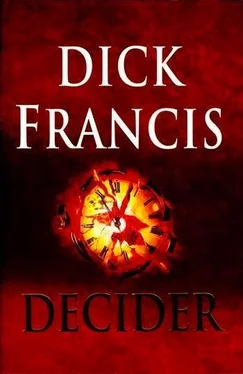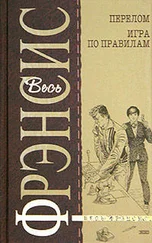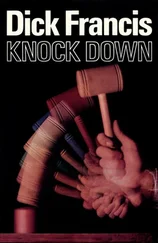Carteret wrote:
More rumours about Wilson Yarrow. He’s being allowed to complete his diploma! They’re saying someone else’s design was entered in his name for the Epsilon prize by mistake!! Then old Hammond says a brilliant talent like that shouldn’t be extinguished for one little lapse! How’s that for giving the game away? Discussed it with Lee. He says choice comes from inside. If someone chooses to cheat once, they’ll do it again. What about consequences, I asked? He said Wilson Yarrow hadn’t considered consequences because he’d acted on a belief that he would get away with it. No one seems to know — or they’re not telling — how the ‘mistake’ was spotted. The Epsilon has been declared void for this year. Why didn’t they give it to whoever’s design it was that won it?
* Just heard a red hot rumour. The design was by Mies!!! Designed in 1925, but never built. Some mistake!!!
I read on until my eyes ached over his handwriting but nowhere had Carteret confirmed or squashed the red-hot rumour.
One long ago and disputed bit of cheating might be interesting, but even Marjorie wouldn’t consider Carteret’s old diaries a sufficient lever, all these years later, especially as no action had been taken at the time. To call Wilson Yarrow a cheat now would sail too close to slander.
I couldn’t see any way that a dead ancient scandal, even if it were true, could have been used by Yarrow to persuade or coerce Conrad into giving him, alone, the commission for new stands.
Sighing, I returned the diaries to their carrier bag, watched the last five minutes of Pinocchio and settled my brood for the night.
On Tuesday morning, with pressing errands of their own to see to, the Gardners took me and the boys with them to Swindon, dumping us outside the launderette and arranging a rendezvous later at a hairdressing salon called Smiths.
While almost our entire stock of clothes circled around washing and drying, we made forays to buy five pairs of trainers (difficult — and expensive — as, for the boys, the colours and shapes of the decorative flashing had to be right , though to my eyes the ‘Yuk, Dad’ shoes looked much the same), and after that (making a brief stop to buy a large bag of apples), I marched them relentlessly towards haircuts.
Their total opposition to this plan vanished like fruit cake the second they stepped over the threshold of Smiths, as the person who greeted us first there was Penelope Faulds. Blonde, tall, young Penelope, slapping hands with my children and deconstructing my every vestige of maturity.
Smiths, which I had expected somehow to be quiet and old fashioned because of its age, proved to have skipped a couple of generations and now presented a unisex front of street cred, blow-dries and rap music. Hair-styles in photographs on the walls looked like topiary. Chrome and multiple mirrors abounded. Young men in pigtails talked like Eastenders. I felt old there, and my children loved it.
Penelope herself cut their hair, consulting with me first about Christopher’s instructions to have his head almost shaved, leaving only a bunch of his natural curls falling over his forehead. ‘Compromise,’ I begged her, ‘or his mother will slay me. It’s she who normally gets their hair cut.’
She smiled deliciously. I desired her so radically that the pain made a nonsense of falling-in roofs. She cut Christopher’s hair short enough to please him, too short to my eyes. It was his hair , he said. Tell that to your mother, I told him.
Toby, interestingly, asked for his cut to be ‘ordinary’: no statement of rebellion. Vaguely pleased, I watched Penelope fasten a gown round his throat and asked if her mother were anywhere about.
‘Upstairs,’ she said, pointing. ‘Go up. She said she was expecting you.’ She smiled. Hop, skip and jump, heart. ‘I won’t make your kids look freaks,’ she promised. ‘They’ve got lovely shaped heads.’
I went upstairs reluctantly to find Perdita, and it was there, out of sight, that the old order persisted: the ladies with their hair in rollers, sitting under driers reading Good Housekeeping .
Perdita, vibrant in black trousers, a bright pink shirt and a long rope of pearls, led me past the grandmotherly customers who watched a large man with a walking stick go by as if he’d come from a different species.
‘Never mind my old loves,’ Penelope teased me, beckoning me into a sheltered be-chintzed sanctum on the far side of the beautification. ‘Tanqueray do you?’
I agreed a little faintly that it would, and she pressed into my hand a large glass holding lavish gin and little tonic with tinkling ice and a thick slice of lemon. Eleven-fifteen on a Tuesday morning. Ah, well.
She closed the door between us and the old loves. ‘They have ears like bats for gossip,’ she said blithely. ‘What do you want to know?’
I said tentatively, ‘Forsyth...?’
‘Sit down, dear,’ she commanded, sinking into a rose-printed armchair and waving me into its pair.
She said, ‘I’ve thought all night about whether I should tell you these things. Well, half the night. Several hours. William always trusted me not to repeat what he told me, and I never have. But now... I don’t really know if he would say I should be silent for ever, but things are different now. Someone blew up his beloved racecourse, and you saved the race meeting yesterday and I think... I really do think that, like you said, you can’t finish the job for him unless you know what you’re up against, so, well, I don’t think he’d mind.’ She drank some gin. ‘I’ll tell you about Forsyth first, and then we’ll see.’
‘All right,’ I said.
She sighed deeply and began, gathering ease and momentum gradually as she went along.
‘Forsyth,’ she said, ‘set out to defraud an insurance company, and the family had to come up with the whole payoff or visit him behind bars for God knows how many years.’
‘I thought,’ I said slowly, ‘it might be something like that.’
‘William said...’ She paused, still a little inhibited; uncertain, despite her decision. ‘It seems odd to be telling you these things.’
I nodded.
‘I wouldn’t say a word if he were alive, but I don’t care so much for his family. I often told him he ought to let them suffer properly for their criminal actions, but he wouldn’t hear of it. Keeping the Stratton name clean... a sort of obsession.’
‘Yes.’
‘Well,’ she took a deep breath, ‘about a year ago, Forsyth borrowed a fortune from the bank, guaranteed by Ivan — his father — on the security of the garden centre, and he started buying and selling radio-controlled lawn mowers. Ivan’s no great businessman, but at least he listens to his manager and goes to Conrad or William... used to go, poor lamb... for advice, and has proper audits... but that know-it-all Forsyth, he went his own way and wouldn’t listen to anybody and he bought a huge warehouse on a mortgage and thousands of lawn mowers that were supposed to cut the grass while you sat and watched, but they were already going out-of-date when he signed a contract for them, and also they kept breaking down. The people who sold them to him must have been laughing themselves sick, William said. William said Forsyth talked about “cornering the market”, which no one can ever do, William said, in anything. It’s a short cut to bankruptcy. So there is Forsyth with this vast stock he has contracted to buy but can’t sell, paying a huge mortgage he can’t afford, with the bank bouncing his cheques and Ivan facing having to cover this enormous bank loan... and you can guess what happened.’ She paid attention to her drink.
‘A little fire?’ I suggested, swirling the ice round in my own glass.
Читать дальше




